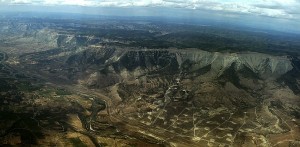We have much more to do and your continued support is needed now more than ever.
European Trade Document Reveals Threat to Wildlife Habitat and Climate
A leaked trade document from the European Union was published yesterday by the Washington Post, revealing how the EU is pressuring the United States to lift its ban on crude oil exports to allow them access to our oil and gas. In the leaked documents about a proposed trade deal (Transatlantic Trade and Investment Partnership –TTIP), the EU expressed it is seeking a legally binding rule which, if approved by the United States, would require the U.S. to approve all crude oil and natural gas exports to the EU with no review process. This could dramatically increase our oil exports, possibly trigger more development, and severely undermine efforts to combat climate change and protect our lands.

Already we see unprecedented levels of drilling for fossil fuels on public and private lands with sensitive wildlife habitat. Our public lands are home to iconic wildlife species like the mule deer and the elk. Allowing export of oil will spur more destruction, fragmentation and fracking of wildlife habitat and public lands, making it increasingly more difficult for wildlife species to survive.
Moving Production in the Wrong Direction

President Obama has repeated his commitment to be a global leader on climate change, and has made great strides in reducing domestic carbon emissions with actions such as the newly released carbon rules to limit pollution from power plants. But we cannot maintain that role and cut carbon pollution at home while exporting millions of tons of carbon pollution across the globe. Overturning the export ban would increase emissions worldwide, and would undercut our moral authority to lead the world on reducing emissions.
![]() We need to keep moving forward on curbing carbon emissions and not take a giant step backwards by allowing for the extraction and export of dirty fossil fuels. Take action and tell the EPA that you support efforts to limit carbon pollution from power plants.
We need to keep moving forward on curbing carbon emissions and not take a giant step backwards by allowing for the extraction and export of dirty fossil fuels. Take action and tell the EPA that you support efforts to limit carbon pollution from power plants.




















